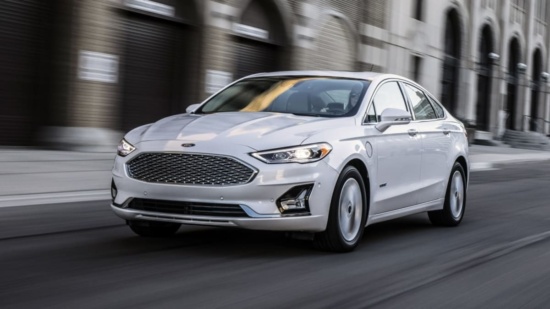Ford has issued a recall for approximately 15,000 units of the Ford Fusion Energi plug-in hybrid manufactured between 2019 and 2020. These specific sedans are equipped with a faulty current interruption device (CID) that has the potential to cause fires in certain situations.
The National Highway Traffic Safety Administration (NHTSA) has designated the recall as number 23V-440. It encompasses a total of 14,452 units of the Fusion Energi manufactured from December 6, 2017, to July 27, 2020. Ford has determined that the defect affects every single one of the cars included in the recall.
According to the company’s explanation, when the current interruption device (CID) is activated in a high-voltage battery cell, it can lead to an overabundance of voltage and current passing through the battery energy control module (BECM). Consequently, this can lead to BECM damage and result in the shutdown of the drivetrain. Ford notes that drivers may receive a “stop safely now” message on the instrument cluster as a warning before this occurs. Moreover, damage to the BECM can potentially cause a fire in a specific area.
Ford confirms that it has no knowledge of any accidents or injuries associated with the defect. However, the company acknowledges that its Trend and Early Warning Support (TEWS) team has reported five cases of fire allegations originating from the trunk of a 2019 Fusion plug-in hybrid. These incidents occurred between March and May 2022, coinciding with the installation of a new BECM at dealerships.
Ford issued a technical service bulletin (TSB) to its dealers on February 8, 2023, providing instructions to replace the high-voltage battery in a Fusion Energi if a customer brings the vehicle for service due to one or more voltage sense diagnostic trouble codes. This instruction expands the scope beyond simply replacing the BECM.
As Ford continues to seek a resolution to the issue, the company is advising owners of the affected vehicles to avoid charging their cars in order to maintain a lower level of charge in the high-voltage battery. This precaution aims to mitigate the risk of both drivetrain shutdown and potential fires. Starting on July 10, 2023, Ford will initiate communication with owners through mail and will provide regular updates as engineers gather more information about the problem.




